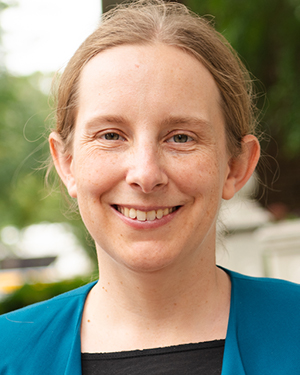Tracy Slatyer – Searching for dark matter with the universe's highest-energy light
Talk details
- Date: 24 November 2024
- 1 p.m. (ET)
- Location: Zoom
- Video recording
Talk abstract
From the speaker:
“Gamma rays, with frequencies billions of times higher than visible light, provide a window on extremely energetic astrophysical processes occurring in our Milky Way Galaxy and beyond. At the same time, the mysterious dark matter of the universe could imprint a range of clues to its existence in the gamma-ray sky. Disentangling the two isn't always easy, but I will discuss how scientists try to distinguish possible dark matter signals from high-energy astrophysics, what we are currently seeing in the data, and what new clues the next generation of gamma-ray telescopes are expected to provide.”
Presenter
Tracy Slatyer is a theoretical physicist who works on particle physics, cosmology and astrophysics. Her research is motivated by questions of fundamental particle physics — in particular, the nature and interactions of dark matter — but she seeks answers to these questions by studying possible signatures of new physics in astrophysical and cosmological data. Her particular areas of focus include research into scenarios where the dark matter experiences new forces of nature, precision theoretical predictions for photon signals from heavy colliding dark matter particles, modeling of the possible effects of dark matter interactions on the history of the early cosmos, and hands-on data analysis of high-energy gamma-ray data in search of dark matter signals. She was a co-discoverer of the giant gamma-ray structures known as the “Fermi Bubbles” erupting from the center of the Milky Way.
Slatyer was born in the Solomon Islands and grew up in Australia and Fiji. She completed her undergraduate work with honors in theoretical physics at the Australian National University in 2005 and her doctoral work in physics at Harvard in 2010 under the direction of Douglas Finkbeiner. Slatyer was a postdoctoral researcher at the Institute for Advanced Study in Princeton from 2010-2013, and joined the Massachusetts Institute of Technology Physics Department as a junior faculty member in July 2013. She was promoted to associate professor in 2018 and received tenure in 2019.


